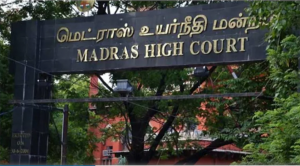 The Madras High Court in the case Ravi Chitra v. Assistant Commissioner (ST) vide W.P. NO. 9689 OF 2024 W.M.P. NOS. 10715 TO 10717 OF 2024 dated 10.04.2024, emphasize the importance of providing the assessee with a fair opportunity to prove the legitimacy of their transactions. The Court held that if an assessee has submitted some evidence, such as tax invoices, bank statements, or GSTR returns, they should be given a chance to provide further documents that demonstrate the actual movement of goods. The Court set aside orders confirming tax demands without giving the assessee a reasonable opportunity to submit additional proof to prove the actual movement of goods. The case is remanded back, instructing the authorities to allow the assessee to present supporting evidence within a specified timeframe.
The Madras High Court in the case Ravi Chitra v. Assistant Commissioner (ST) vide W.P. NO. 9689 OF 2024 W.M.P. NOS. 10715 TO 10717 OF 2024 dated 10.04.2024, emphasize the importance of providing the assessee with a fair opportunity to prove the legitimacy of their transactions. The Court held that if an assessee has submitted some evidence, such as tax invoices, bank statements, or GSTR returns, they should be given a chance to provide further documents that demonstrate the actual movement of goods. The Court set aside orders confirming tax demands without giving the assessee a reasonable opportunity to submit additional proof to prove the actual movement of goods. The case is remanded back, instructing the authorities to allow the assessee to present supporting evidence within a specified timeframe.
Facts of the Case:- In this case, the assessee received a show-cause notice alleging that ITC was wrongfully availed. In response, the assessee provided evidence to support the legitimacy of the transactions, including original tax invoices, bank statements, ledger accounts, and relevant GSTR returns.
The assessee contended that the order confirming the tax demand was issued without sufficient notice, arguing that it was unaware of the order because GST compliances were handled by a tax consultant. They became aware of the order only after receiving an attachment order for its bank account.
The Department submitted that the assessee failed to submit critical documents, such as e-way bills, lorry receipts, and weighment slips, to establish actual movement of goods, which was necessary to justify ITC claims. Also, three reminders for personal hearings were sent to the assessee, all of which were after the assessee’s reply.
Held:- The Court observed that the documents submitted by the assessee indicated the availability of ITC but lacked proof of the actual movement of goods. The Court noted that the assessee had submitted original tax invoices, the ledger account pertaining to the supplier concerned, bank statement and relevant GSTR returns. It appears that the assessee have not submitted e-way bills, lorry receipts, weighment slips and the like to establish actual movement of goods. Further, it appears that the tax proposal was confirmed largely on the ground that there was no proof of actual movement of goods.
The Court stated that ” By taking into account the nature of documents submitted by the petitioner, which include the bank statement showing payments made to the supplier, the GSTR 2A indicating the availability of ITC, it is just and appropriate that the petitioner be provided an opportunity to produce relevant documents to prove actual movement of good”.
The Court set aside the impugned order and remand the matter, giving the assessee a chance to provide additional documents to prove the movement of goods and thereby contest the tax demand on its merits. The decision also emphasizes the importance of having a thorough and complete set of supporting documents when addressing tax-related disputes, particularly those involving ITC.
To read the complete judgment 2024 Taxo.online 692


